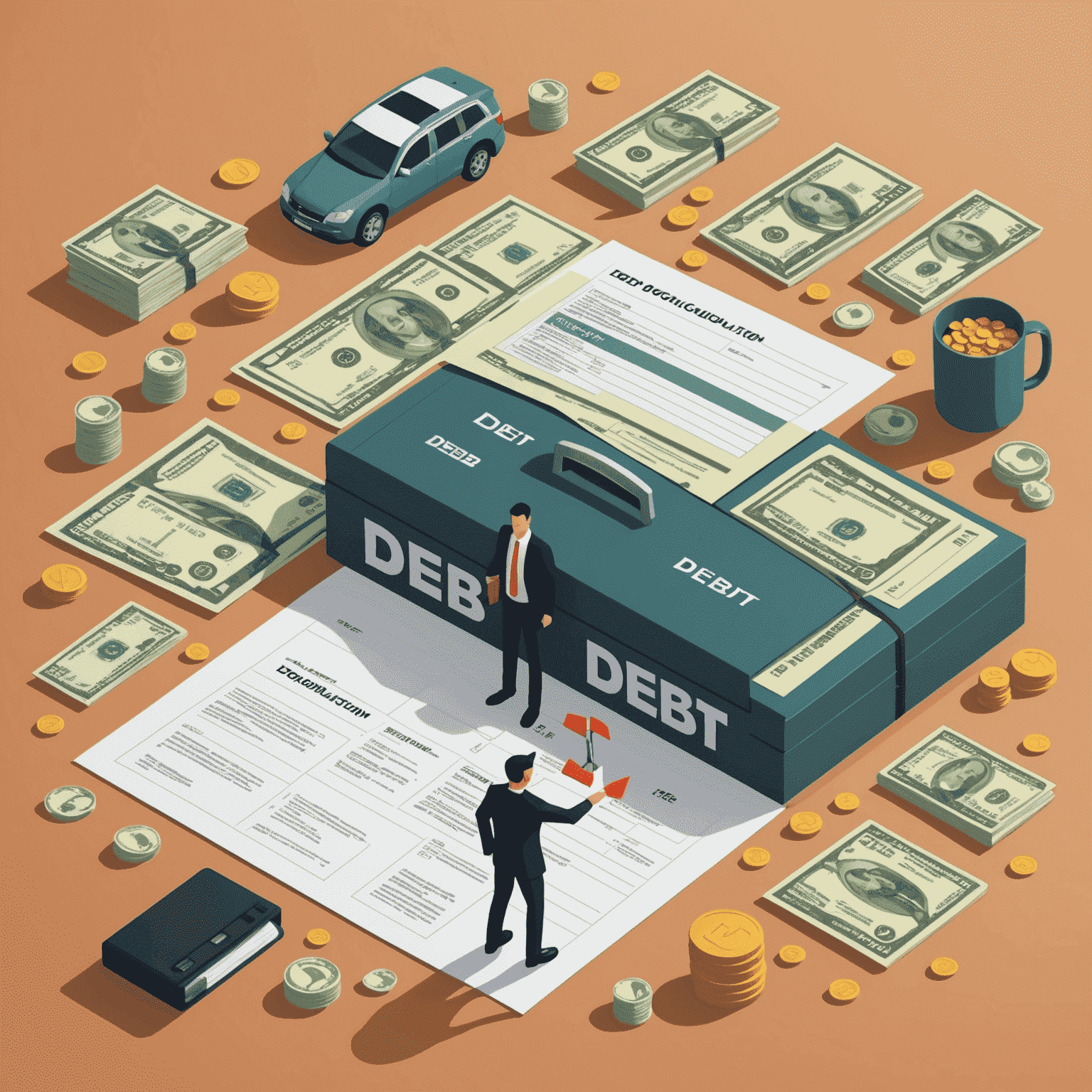Effective Strategies for Managing and Reducing Personal Debt

Debt management is a crucial aspect of financial literacy that can significantly impact your overall financial health. In this article, we'll explore practical strategies to help you effectively manage and reduce your personal debt, putting you on the path to financial freedom.
1. Create a Comprehensive Debt Inventory
The first step in managing your debt is to create a detailed inventory of all your outstanding debts. This includes credit card balances, personal loans, student loans, and any other forms of debt you may have. List the creditor, outstanding balance, interest rate, and minimum payment for each debt. This overview will help you prioritize your debts and develop a targeted repayment strategy.
2. Prioritize High-Interest Debt
Once you have a clear picture of your debts, focus on paying off high-interest debt first. These debts, often from credit cards, can quickly accumulate and become overwhelming. By tackling high-interest debt aggressively, you'll reduce the overall amount you'll pay in interest over time.
3. Consider Debt Consolidation
Debt consolidation can be an effective way to simplify your debt repayment process. This involves taking out a single loan to pay off multiple debts, potentially at a lower interest rate. This strategy can make your debt more manageable by reducing the number of payments you need to make each month and potentially lowering your overall interest costs.

4. Implement the Snowball or Avalanche Method
Two popular debt repayment strategies are the snowball and avalanche methods. The snowball method involves paying off your smallest debts first, giving you quick wins and motivation. The avalanche method focuses on paying off debts with the highest interest rates first, potentially saving you more money in the long run. Choose the method that aligns best with your financial situation and personality.
5. Create and Stick to a Budget
Developing a realistic budget is crucial for effective debt management. Analyze your income and expenses, and look for areas where you can cut back. Allocate any extra funds towards debt repayment. A well-planned budget will help you avoid accumulating new debt while paying off existing obligations.
6. Negotiate with Creditors
Don't hesitate to reach out to your creditors to negotiate better terms. You may be able to secure lower interest rates, waived fees, or even a temporary hardship plan. Many creditors are willing to work with you, especially if you've been a responsible borrower in the past.
7. Increase Your Income
Look for ways to boost your income to accelerate your debt repayment. This could involve taking on a part-time job, freelancing, or selling items you no longer need. Any additional income can make a significant difference in your debt reduction journey.

8. Avoid New Debt
While working to pay off existing debt, it's crucial to avoid accumulating new debt. Cut up credit cards if necessary, and focus on living within your means. This may require lifestyle changes, but it's essential for long-term financial health.
9. Seek Professional Help if Needed
If you're feeling overwhelmed by your debt, don't hesitate to seek help from a financial advisor or credit counselor. These professionals can provide personalized advice and help you develop a tailored debt management plan.
Conclusion
Managing and reducing personal debt requires dedication, discipline, and a strategic approach. By implementing these strategies and staying committed to your financial goals, you can take control of your debt and work towards a more secure financial future. Remember, the journey to becoming debt-free is a marathon, not a sprint. Stay focused, celebrate small victories, and keep pushing forward on your path to financial freedom.